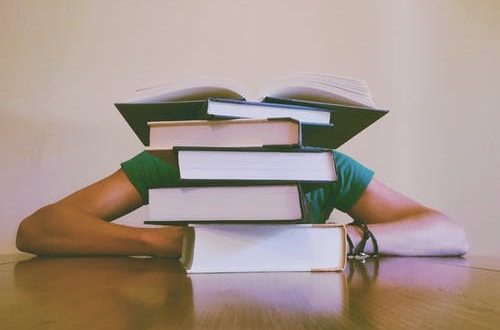With all that has been going on in the last two months, it is hard to not be concerned. It is especially challenging when this virus seems to be the only thing that people talk about and you can’t blame them.
The coronavirus pandemic has taken away our sense of freedom and safety. Although the goal of stay-at-home orders are to protect people from further damage and risk, it is difficult to keep a smiling face every day.
Due to the virus, students have been forced to cut their spring semester experience short and transition to online learning. With this sudden change, almost every college student’s life has been abruptly shaken.
For many, there will be no more waking up early and rushing to Bailey Science Center for their public speaking lectures, and while that does seem nice to some there is much more to miss out on.
Meeting with friends at Which Wich 30 minutes earlier on a Sunday afternoon has come to a halt. There will not be any physical interactions with friends because the distance is too far and not even allowed.
For a lot of students, they have thrived on being on campus and the advantages that come with it. Some may even have come to campus to escape the troubles from home. So for these same students, this pandemic may not only be affecting their academics but also their mental state.
Joseph Persichetti, freshman fine art major, said that the pandemic has negatively impacted his plans and even his new job.
“I only got to work two weeks and then COVID-19 basically shut down the school,” Persichetti said. “I still have my job for next semester, but I’m making no money which is going to make it difficult to manage classes, a job and bills.”
For an art student, the transition to online is not the easiest thing to do.
“All of my classes are studio art classes, which are not meant for online,” Persichetti said.
Persichetti went on to say that this pandemic had him fall into a dark place due to the mandatory quarantine but with the help of his family he was able to push through.
Cassie Katen, sophomore History and Secondary Education major, is a well-involved student. Katen is a part of SGA as President Pro Tempore and Alpha Sigma Alpha just to name a few.
“I would say my mental state has been a lot harder to maintain,” Katen said. “I’m really extroverted and involved on campus so not being able to see the dozens of people I see every day has been very hard.”
Katen said that she feels more like herself when she is on campus.
“I love everything I’m involved in, I love Valdosta the city and I love being a part of the university and the life I’ve established there so this has definitely been really hard for me to adapt to,” she said. “I’m trying to stay positive and focus on the things I’m lucky to have.”
Although the pandemic has ruined the spring semester, there is still much to be grateful for.
“I certainly know my appreciation of campus will be greater,” Katen said. “I had several conversations with students about how next semester is going to be the best semester of our lives because we missed out on so much this semester. ”
At the VSU Counseling Center, students can call whenever they feel as though their mental health is at stake.
Dr. Tricia Hale, director of counseling services, said that since the pandemic has started there has been an increase in calls to the counseling center.
Since the pandemic began, VSU started a concierge coaching program, where VSU employees check in with students. This allows students to stay on track during this tough transition. Coaches can refer students to resources a student might need like the counseling center.
“The coaching and checking in with students seems to be working because we are getting several referrals and the coaches are encouraging the students to reach out for help,” Dr. Hale said.
Dr. Hale said that she believes that there are positives to come out of this issue such as spending time with family, taking time to enjoy others’ company and appreciating nature.
“I think it has also increased fluency in some technology that may change the way people interact with one another in the future with Zoom meetings, Microsoft Teams capabilities, video chatting with a therapist or a doctor,” she said. “It will definitely be interesting to see how this pandemic changes the way people interact with one another in the future.”
The counseling center created a student resource page discussing what is to be expected, how to cope and what to do to stay healthy.
For more information about the student resource page go to valdosta.edu.
Written by Jasmin Small, staff writer. Photo courtesy of Pixabay.
 The Spectator The independent student newspaper of Valdosta State University
The Spectator The independent student newspaper of Valdosta State University







